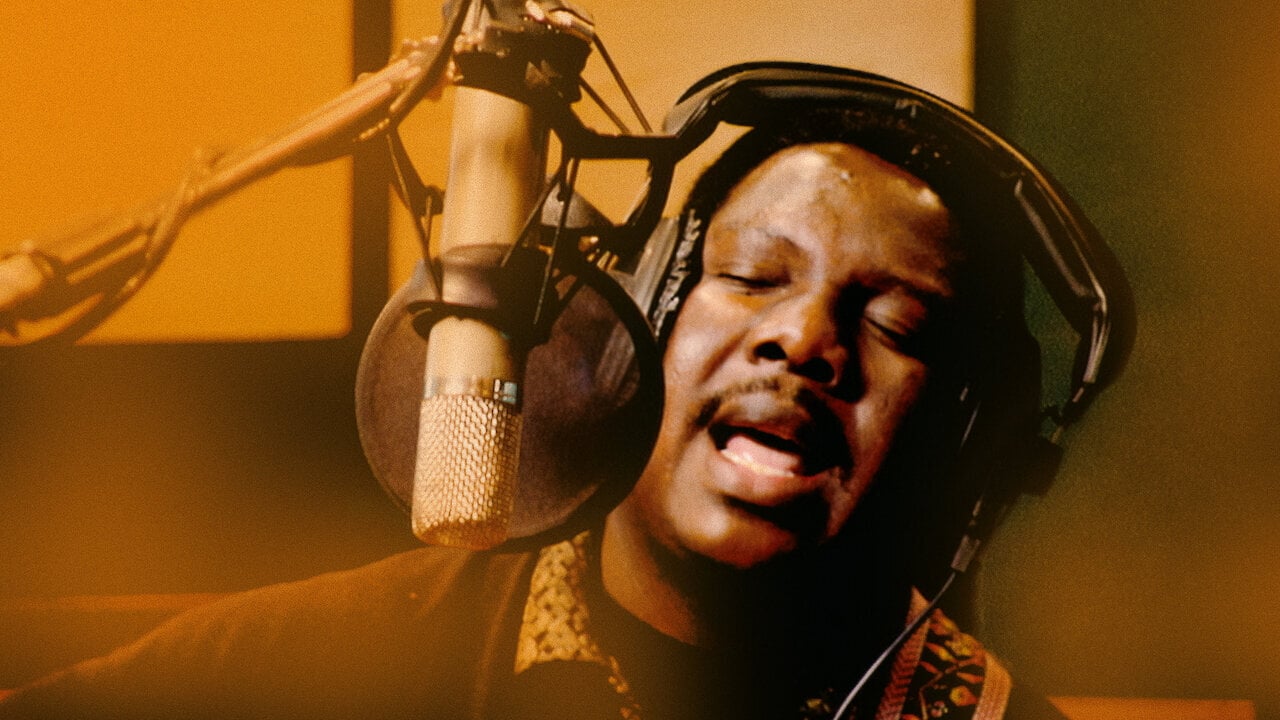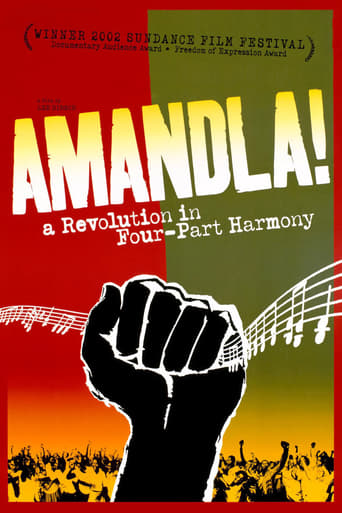

I rented this film a few days ago, its not something I was looking forward to watching, as its a documentary, a genre I don't generally enjoy watching, but after I had actually tried to make an effort to learn about my countries history, I cant say I regretted it. Amandla! takes you through the lives of several people, black and white, and their different views of Apartheid, an Afrikaaner Separatist movement which started in 1948, and only ended in 1994. this film shows us the mistake humanity has made, and what it has done to those involved. The picture is considerably less than perfect, but as it is a documentary, such a fault can easily be overlooked, and often the interviewees are hard to understand and I must admit, it is not in the same league as some other South African films like "Yesterday" and the Oscar winning "Tsotsi", but nevertheless, it is still something one should watch if you've seen the other two.The interviews, however difficult to here, make their subject's opinions very clear, some of which are actually rather alarming. Yet, I feel obligated by a patriotic spirit buried deeply in my brain, so I will give this film 6/10
... View MoreThe remaining problems of AIDS and poverty in South Africa often overshadow the miracle that happened in the 1990's. This documentary shows you a different side of the story. Musicians of all kinds are shown, with interesting interviews and performances that are moving. I appreciated the way the filmmakers show a considerable amount of music but mix it in with personal narratives. It is fascinating to look at a time period that seems completely past but was so recent that all the involved parties are still alive. Even apartheid era police are interviewed. The musicians also range from charming older women speaking of decades ago to very popular musicians known worldwide. The film does seem to be a bit disorganized at times but it never loses your interest. Other movies about apartheid include Cry Freedom and Cry, the Beloved Country. For DMB fans, there is an interview of Dave Matthews on the DVD as he helped finance this movie.
... View MoreFor almost fifty years from 1948 to 1994, black citizens in South Africa were stripped of every basic human right while governments of the world pretended not to see. Systematically uprooted from their homes and moved into "townships", they were made to carry passbooks, arrested without provocation, tortured and randomly murdered. But while successive governments took away their freedom, they couldn't take away their songs or their desire for freedom. Today, while there are still problems, Blacks and Whites live together in a free South Africa. Amandla: A Revolution in Four-Part Harmony, an incredibly moving documentary by Lee Hirsch, pays tribute to the role played by protest songs in the non-violent revolution that brought an end to apartheid nine years ago. Amandla means power, and it's the power of the songs that helped to free the people. Hirsch, a young filmmaker from New York, spent nine years in South Africa gathering newsreel footage, video clips, old photos, and interviews with musicians and political activists to show how protest songs expressed the fight against oppression. Winner of the Audience Award and the Freedom of Expression Award at the 2002 Sundance Film Festival, Amandla shows fifty years of South African history beginning with Prime Minister Verwoerd's announcing his racial segregation policy in 1948 describing it as "a policy of good-neighborliness." The film also shows footage of the Sharpeville massacre and the Soweto uprising, and the triumphant election of Nelson Mandela to the Presidency in 1994. Amandla begins with the exhumation from a pauper's grave of composer Vuyisile Mini whose protest anthems led to his hanging in 1964 and ends with his proper reburial fifty years later. It moves forward to depict how the songs communicated to the people in a way that political speeches could not, showing how different phases of the struggle brought forth different types of songs. For decades, songs such as Mini's "Beware Verwoerd", Vilakazi's "Meadowlands", the "Toyi-Toyi" chant and the uplifting "Mandela" by Hugh Masekela expressed the energy and purpose of the South African people and rallied followers to their cause. In addition to the music, there are interviews with those that describe their experience of being imprisoned or were forced into exile. There are even interviews with White riot policeman and executioners, but the power of the film belongs to the music and powerful is an understatement. It is truly moving to watch 20,000 people sing in unison a song that has only one word Senzenina asking, "What have we done?" over and over, "What have we done?" It is worth the price of admission just to hear Sophie Mgcina singing Madam Please, a song written for black domestic workers that includes the lines " Madam, please, before you ask me if your children are fine/ Ask me when I lost all mine". Amandla builds to a joyous climax with President Nelson Mandela singing Masekela's "Bring Him Back Home" before thousands of cheering admirers. It has been only nine years since freedom came to South Africa but many have only a distant memory of the years of oppression and conflict. Similar to movies about the holocaust, Amandla underscores the power of films to help us remember. Though it could be a little shorter or perhaps a little more focused, if you see one film this year, make it Amandla: A Revolution in Four Part Harmony. At the end, you may be short of Kleenex but filled with renewed hope for the human race.
... View MoreThe music of "Amandla! A Revolution in Four-Part Harmony" is as powerful a force for the South African revolution, as Lucas would have us believe it is for the Jedi.For our time, it also provides a near view of slavery. Thus, this motion picture is a must see not only for people of color, it is such for all the people to see. DLF
... View More